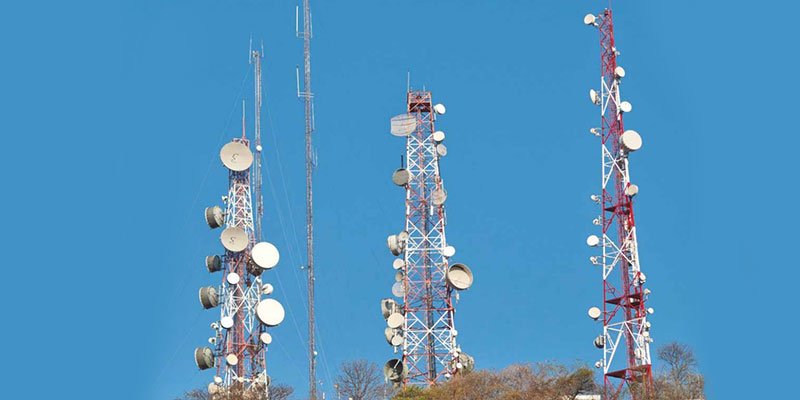- India
- Dec 27
New telecommunications Bill to modernise regulatory framework
• President Droupadi Murmu has given her assent to the Telecommunications Bill, 2023.
• Last week, the Parliament passed the Bill that aims to reform the country’s century-old telecom law to make the sector investor-friendly, prioritises user protection but also extends powers to the government to intercept communications.
• It allows the government to temporarily take control of telecom services in the interest of national security.
• The Bill seeks to supersede the existing and archaic regulatory framework for the telecommunication sector.
• While the Bill excludes from its ambit broadcasting, and over-the-top services such as WhatsApp and Telegram, it cements rules for spectrum allocation and provides for a non-auction route for giving airwaves for satellite-based communication services.
• The structural reforms are also set to streamline what has so far been a complex licensing system in the telecom sector and usher in a simple authorisation mechanism.
Why the govt introduced this Bill?
• Telecommunication sector is a key driver of economic and social development. It is the gateway to digital services. Security of our country is vitally dependent on safety of telecommunication networks.
• Therefore, there is a need to create a legal and regulatory framework that focuses on safe and secure telecommunication network that provides for digitally inclusive growth.
• The current legal framework is governed by three laws — Indian Telegraph Act, of 1885, the Wireless Telegraphy Act (1933), and the Telegraph Wires (Unlawful Possession) Act (1950).
• The nature of telecommunication, its usage and underlying technologies have undergone massive changes, especially in the past decade.
• Therefore, there is a need for enacting legislation for telecom sector that serves the needs of our society.
• The Telecommunications Bill, 2023 amends and consolidates the laws relating to development, expansion and operation of telecommunication services and telecommunication networks, assignment of spectrum, and for matters connected therewith.
Highlights of the Bill:
• Drawing attention to key provisions in the Bill that aim to safeguard telecom users, Telecom Minister Ashwini Vaishnaw said impersonation and acquisition of SIM fraudulently using someone else’s identity proof for telecom services will be punishable with imprisonment for a term up to three years and a fine of up to Rs 50 lakh.
• The Bill also lays down similar stringent provisions for phone number spoofing for fraud, and moots an “digital-by-design” online grievance redressal mechanism for addressing users’ complaints.
• It also seeks to tighten the noose on pesky callers through various means, including by checking misuse of SIM.
• Notably, the Telecommunications Bill has brought clarity on rules with regard to the contentious issue of spectrum assignment while focussing on ease of doing business with migration towards authorisation scheme from licence regime, enhancing protection for communications infrastructure as well as consumers.
• On the occurrence of any public emergency, including disaster management, or in the interest of public safety, the central government or a state government or any officer specially authorised in this behalf, can take temporary possession of any telecommunication service or telecommunication network from an authorised entity.
• The central government may, if satisfied that it is necessary or expedient so to do, in the interest of national security, friendly relations with foreign States, or in the event of war, by notification take such measures as are necessary in the circumstances of the case, including taking over the control and management of, or suspending the operation of, or entrusting any authority of the central government to manage any or all of any telecommunication services, or any telecommunication network or part thereof, connected with such telecommunication services.
• The Bill, however, ignores telecom players’ long-standing demand to bring internet-based calling and Over The Top (OTT) applications like WhatsApp, Google Meet and Signal under telecom rules to comply with “same service, same rules”.
• The Bill seeks to address issues of continuity of telecom service which may help in cases where a telecom operator for some legal-commercial or technical reason is unable to provide services.
• Any spectrum assigned through the administrative process prior to the implementation of the new law will continue to be valid on the terms and conditions on which it had been assigned. This will be for a period of five years from the date it was assigned or till the date of expiry of such assignment, whichever is earlier.
• The Bill has brought in provision to take back unutilised spectrum before the expiry of permit to use it. However, it does not provide for refund of spectrum price paid by entities for its allocation.
• Further, the Bill brings in a state government-led dispute resolution structure where the district magistrate and the district judge will decide right of way issues that are related to permits for telecom network roll out.
• Anyone causing damage to telecommunication network will be liable for compensation for the damage caused and fine which may extend up to Rs 50 lakh.
• To ease the legal dispute process, the Bill also has a provision for voluntary disclosure of lapses by a telecom company and to correct the mistake by paying applicable penalties.
Manorama Yearbook app is now available on Google Play Store and iOS App Store

